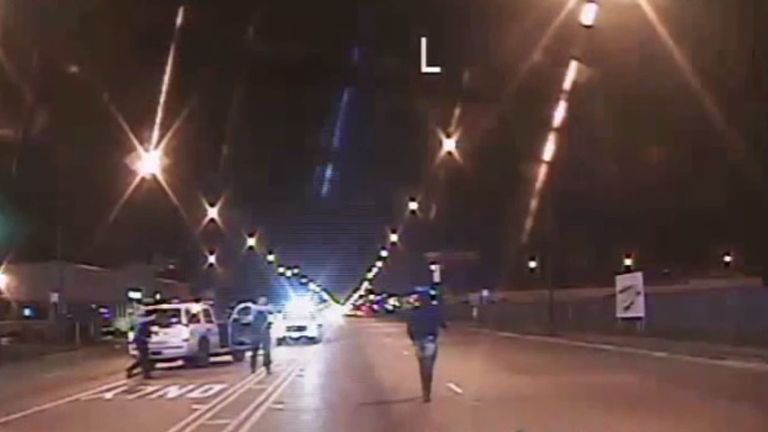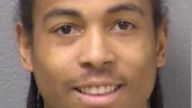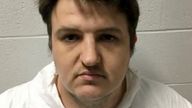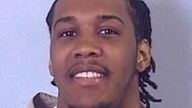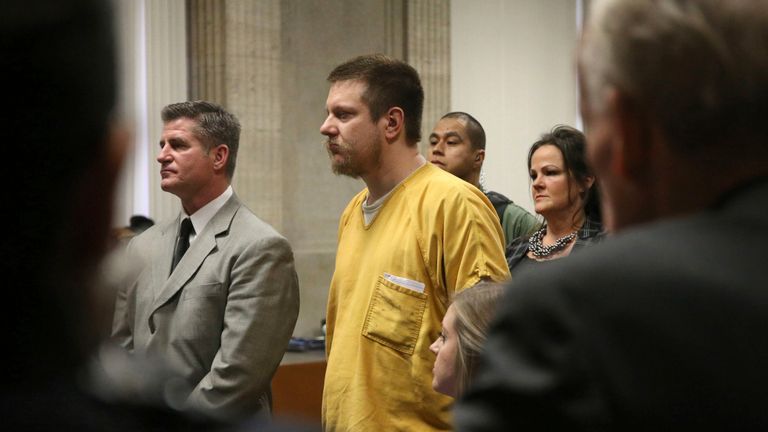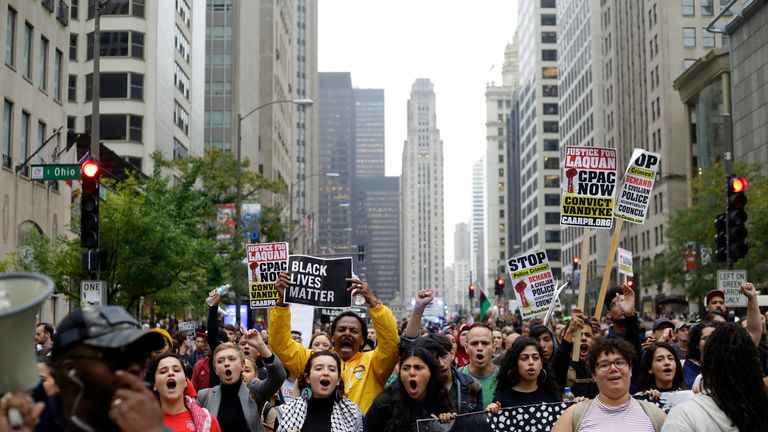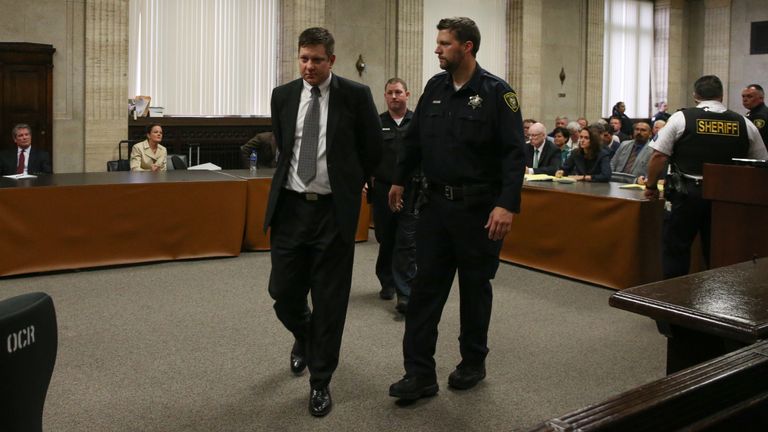Laquan Mcdonald: Officer jailed for shooting teen 16 times
The case has sparked street protests and fuelled race debates in the US after video showed Laquan McDonald, 17, running away.
Saturday 19 January 2019 10:11, UK
A white police officer who shot a black teenager 16 times in 2014 has been jailed for nearly seven years for his murder.
Jason Van Dyke was sentenced to six years and nine months in prison on Friday after being convicted in October of second-degree murder and 16 counts of aggravated battery - one for each bullet fired at Laquan McDonald in Chicago.
The case has fuelled debates about race and policing and its "code of silence", and sparked large street demonstrations after video of the incident emerged 13 months later, only because a judge demanded its release.
Footage showed Van Dyke opening fire within seconds of getting out of his police car and continuing to shoot the 17-year-old as he lay in the street.
The teen, who was carrying a small knife, can be seen collapsing in a heap after the first few shots, and bullets kept hitting his body for 10 more seconds.
Van Dyke, who was responding to a report of a male breaking into trucks and stealing radios in Chicago's South Side, did not react when his sentence was read out.
Moments before, he acknowledged Laquan's death and told the judge: "As a God-fearing man and father, I will have to live with this the rest of my life."
He is the first Chicago officer to be found guilty of an on-duty shooting in half a century.
However, his sentence was less than half the time prosecutors had wanted, after they asked for 18 to 20 years by making the 16 aggravated battery charges the main sentence - instead the judge agreed the second-degree murder charge was the main offence.
The prison term is also much lower than if Van Dyke had been convicted of first-degree murder, which carries a minimum of 45 years in prison.
Lawyers on both sides agreed that if he behaves in prison the officer could be released in less than three and a half years.
His lawyers said Van Dyke "truly felt great" after the sentencing.
Laquan's great uncle said the sentence reduced his life to "a second-class citizen" and "suggests to us that there are no laws on the books for a black man that a white man is bound to honour".
Although the issue of race constantly overshadowed the case, it was only raised a few times during the trial.
One of the few mentions was at the beginning when special prosecutor Joseph McMahon said Van Dyke saw "a black boy walking down the street" who had "the audacity to ignore the police".
Several black motorists testified that the officer had used a racial slur and excessive force during traffic stops in the years before the shooting.
Vidale Joy said Van Dyke used the slur after pulling him over in 2005 and put a gun to his head.
He said Van Dyke "looked infuriated" and seemed "out of his mind".
Another man, Ed Nance, became emotional as he looked at Van Dyke and told how during a 2007 traffic stop the officer swore and slammed him on the car's bonnet, grabbed him by the arm and dragged him to his police car.
Relatives of the officer tried to defend and humanise him, saying he is a good father and not racist.
At the sentencing Laquan's uncle read a letter written from his nephew's perspective.
"I am a 17-year-old boy, and I am a victim of murder," Marvin Hunter said.
"I am unable to speak in my own voice" because an officer "thought he would become judge, jury and executioner".
On Thursday former officer Joseph Walsh, former detective David March and officer Thomas Gaffney were cleared of charges of obstruction of justice, official misconduct and conspiracy.

